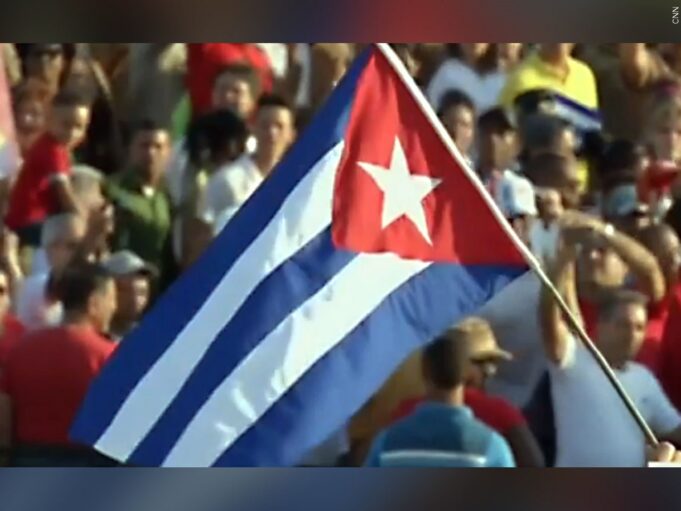Cuban President Miguel Diaz-Canel has warned the U.S. embassy in Havana against fomenting protests by dissidents on the Communist-run island, denouncing attempts made by Washington to subvert law and order ahead of mid-November rallies.
Describing the upcoming demonstrations as “illegal,” Mr. Diaz-Canel accused the U.S. embassy of “playing an active role in efforts to subvert the internal order of our country,” marking fresh escalation in their long-running rivalry.
The planned rallies, scheduled for the same day the Communist-run country will reopen its borders to tourists, are reportedly sponsored by a U.S.-based Facebook group named Archipelago.
“U.S. diplomatic officials meet frequently with leaders of the counterrevolution, to whom they provide guidance, encouragement, and logistical and financial support,” Mr. Diaz-Canel asserted in a speech to Communist party leaders.
On Oct. 25, in response to a tweet by Cuban Foreign Minister Bruno Rodriguez, the Cuban president said the U.S. embassy in Havana was playing a “sad and shameful role” in “subverting the internal order in our country” in violation of the Vienna Convention.
The U.S. embassy in recent weeks has been leveraging social media communications to criticize Cuba for detaining and jailing people in anti-government demonstrations.
The Cuban government, however, sees it as an “open interference in the internal affairs” of the country, which goes against the UN conventions.
It has maintained that those arrested in July protests were guilty of crimes including public disorder, resisting arrest, and vandalism.
In mid-October, the government denied permission for the November protest, saying Archipelago had links with “subversive organizations” with an “open intention of changing the political system in Cuba.”
Prosecutors in Cuba on summoned dissident leaders from across the country, warning them against convening rallies deemed illegal.
Washington, in turn, threatened Havana with further sanctions should the government detain protesters.
Protests have been prohibited in the island country since Fidel Castro’s 1959 revolution. But demonstrations considered “legitimate” are allowed under the country’s new constitution, approved three years ago.
Pertinently, Archipelago had fanned two days of deadly anti-government protests in the country in July. The protests came amid the nation’s worst economic crisis, resulting from U.S. sanctions and a record surge in coronavirus infections.
The U.S. trade embargo, which has been in place against Cuba since 1962, was reinforced under former U.S. president Donald Trump. Trump’s successor has chosen to tread on the same path.
Joe Biden, who initially distanced himself from his Republican predecessor, has not only retained Trump’s maximum pressure campaign on Cuba, but he has also increased the sanctions.
Several prominent lawmakers in the U.S. Congress, specifically Republicans, have also advocated direct intervention in Cuba, to the point of suggesting bombing strikes.
In recent months, countries like Russia, China and Iran have repeatedly warned the United States that it must not intervene in Cuba.
Following the protests in July, Iran’s Foreign Ministry said the United States was “primarily responsible for the many problems created for the Cuban people.”
“It is pretending to be a supporter of the Cuban protests but has tried to interfere in the internal affairs of this country in blatant violation of international rules,” Iran Foreign Ministry spokesperson Saeed Khatibzadeh was quoted as saying. (PressTV.ir)













